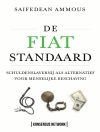Developed nations strive to create the impression that their hearts and pockets bleed for the developing world. Yet, the global North continues to offer unfavorable trade terms to the global South. Truly fair trade would make reciprocal concessions to developing countries while allowing them to better their own positions. However, five hundred years of colonial racism and post-colonial paternalism have undermined trade negotiations.
While urging developing countries to participate in trade, the North offers empty deals to ‘partners’ that it regards as unequal. Using a mixed-methods approach, J. P. Singh exposes the actual position beneath the North’s image of benevolence and empathy: either join in the type of trade that developed countries offer, or be cast aside as obstreperous and unwilling. Singh reveals how the global North ultimately bars developing nations from flourishing. His findings chart a path forward, showing that developing nations can garner favorable concessions by drawing on unique strengths and through collective advocacy. Sweet Talk offers a provocative rethinking of how far our international relations have come and how far we still have to go.
Inhoudsopgave
1. Introduction: The Subtext of North–South Relations
2. Who Is Served by Paternalism?
3. GATT and the Developing World before the Uruguay Round
4. Unequal Partners in Merchandise Trade
5. An Uneven Playing Field in Agricultural Negotiations
6. Big Disparities in Services and Intellectual Property
7. Conclusion: The End of Sweet Talk
Over de auteur
J.P. Singh is Chair and Professor of Culture and Political Economy and Director of the Centre for Cultural Relations at the University of Edinburgh. Singh is the author of seven books and Series Editor of Emerging Frontiers in the Global Economy.












